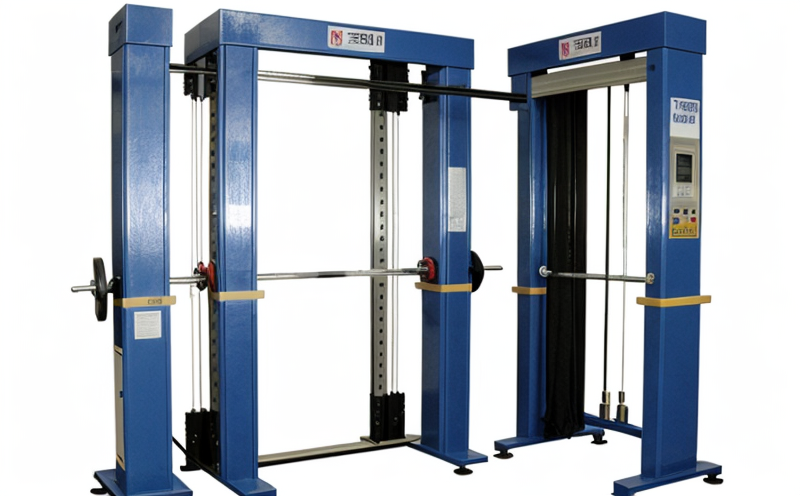Laboratory GSM test of woven fabrics without standard reference
In the textile industry, GSM (Grams per Square Meter) is a crucial measurement that helps in evaluating the weight of fabric. Conducting a laboratory GSM test on woven fabrics can be particularly beneficial when no specific standard or reference is provided by the client. This service allows for accurate and reliable measurements to guide quality control processes, research and development efforts, procurement decisions, and compliance with industry norms.
Without a predefined standard, our technicians employ their expertise in fabric analysis to determine the GSM of various woven fabrics. This approach ensures that clients receive precise data that can be used in decision-making processes without being bound by rigid guidelines. Our method involves careful specimen preparation and the use of specialized equipment to ensure accurate results.
The process typically begins with selecting a representative sample from the fabric roll or batch, which is then cut into uniform pieces suitable for testing. These samples are carefully weighed after being spread flat on a precision scale to eliminate any folding or creasing that could affect accuracy. The weight of each piece is recorded, and subsequent calculations yield the GSM value.
Our laboratory uses state-of-the-art instruments designed specifically for fabric testing, ensuring consistency across all tests. This allows us to provide clients with consistent results that are comparable over time if multiple tests are required. The absence of a standard reference means we can tailor our approach based on the specific requirements of each client, whether it's for internal quality assurance or external reporting purposes.
The lack of a standard also provides flexibility in interpreting results. For instance, deviations from expected GSM values might indicate variations in raw materials, manufacturing processes, or even environmental factors that could impact fabric weight. By understanding these nuances, we can offer valuable insights into the production process and help clients identify potential areas for improvement.
Another advantage of this service is its applicability across different types of woven fabrics, from cotton to synthetic blends. The versatility allows us to serve a wide range of industries including apparel manufacturing, home textiles, and industrial applications. Our technicians are adept at handling various fabric structures and compositions, ensuring accurate measurements regardless of the complexity of the material.
Without a standard reference, we leverage our deep knowledge in textile science to establish benchmarks that can be used for future comparisons or as internal quality control metrics. This service not only provides immediate results but also contributes to long-term quality assurance strategies by establishing a baseline against which all subsequent tests can be compared.
| Industry | Description of Application |
|---|---|
| Clothing Manufacturing | Evaluating the suitability of fabrics for specific garment types. |
| Furniture Industry | Picking appropriate upholstery materials based on weight and durability. |
| Automotive Sector | Selecting interior textiles that meet safety and comfort standards. |
| Textile Research | Developing new fabric formulations and testing prototypes. |
This service is particularly useful for companies engaged in custom fabric development, where traditional standards may not fully capture the unique characteristics of a new material. By focusing on GSM without strict adherence to predefined references, we can provide clients with insights that are directly applicable to their specific needs and goals.
Benefits
- Accurate measurement of fabric weight for diverse applications.
- Tailored service based on client-specific requirements.
- Flexibility in interpreting results without rigid standards.
- Precision measurements that contribute to quality assurance strategies.
- Versatility across various types of woven fabrics and industries.
- Establishing benchmarks for future comparisons and internal quality control.
Industry Applications
| Industry | Description of Application |
|---|---|
| Clothing Manufacturing | Evaluating the suitability of fabrics for specific garment types. |
| Furniture Industry | Picking appropriate upholstery materials based on weight and durability. |
| Automotive Sector | Selecting interior textiles that meet safety and comfort standards. |
| Textile Research | Developing new fabric formulations and testing prototypes. |
| Home Textiles | Evaluating the weight of curtains, rugs, and other home decor items. |
| Fashion Design | Determining the optimal fabric for specific design concepts. |
| Textile Education | Teaching students about fabric properties and measurement techniques. |
Customer Impact and Satisfaction
- Enhanced decision-making capabilities for procurement departments.
- Improved product development processes through precise measurements.
- Increased confidence in fabric selection, leading to higher customer satisfaction.
- Support for compliance with industry standards without being overly constrained by them.





